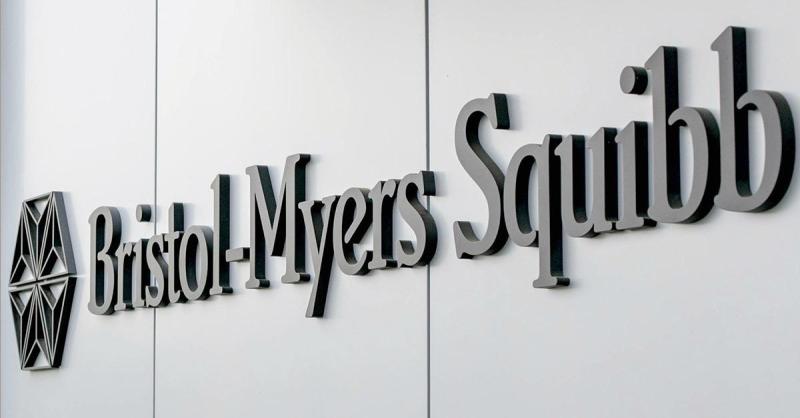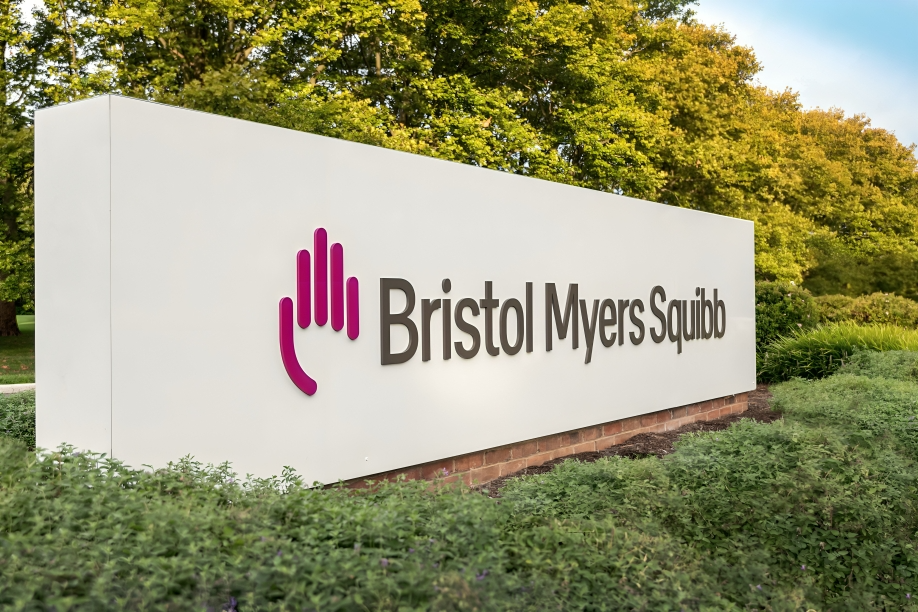Bristol Myers Squibb’s Performance Reflects Continued Focus on Near-Term Execution and Building a Foundation for Long-Term Sustainable Growth
Bristol Myers Squibb is highlighting a strong commitment to near-term execution while laying the groundwork for sustainable long-term growth. The company’s performance demonstrates effective management and strategic initiatives aimed at enhancing their position in the biopharma market.
“We made important strides in the third quarter with the landmark U.S. approval of Cobenfy in schizophrenia, continued sales momentum, strong cash flow generation and key pipeline achievements. We’re focused on closing out the year with strong execution as we deliver on our Growth Portfolio, prioritize high-growth opportunities and continue delivering transformational results for patients.” – said Christopher Boerner, Ph.D., board chair and chief executive officer, Bristol Myers Squibb.
Key financial metrics and developments indicate a robust pipeline and continued focus on delivering innovative therapies for patients. This results-oriented approach underscores their dedication to both immediate objectives and future advancements in healthcare.
– Third Quarter Revenues were $11.9 Billion, increasing 8% (+10% Adjusting for Foreign Exchange)
– Growth Portfolio Revenues were $5.8 Billion, increasing 18% (+20% Adjusting for Foreign Exchange)
– GAAP EPS was $0.60 and Non-GAAP EPS was $1.80; Includes Net Impact of $(0.09) Per Share for GAAP EPS and Non-GAAP EPS Due to Acquired IPRD Charges and Licensing Income
– Achieved U.S. Approval of Cobenfy, the First New Pharmacological Approach to Treat Schizophrenia in Decades
– Raising 2024 Revenue Guidance to Approximately +5% (+6% Adjusting for Foreign Exchange), Non-GAAP EPS Range Increased to $0.75 to $0.95
Bristol Myers Squibb is a global biopharmaceutical company focused on developing innovative medicines for serious diseases. They combine the agility of biotech with the resources of a large pharmaceutical firm, emphasizing patient-centricity in their mission.
The company has made significant advances in oncology, hematology, immunology, and cardiovascular disease, with a robust pipeline of promising therapies. They aim to foster collaboration within the healthcare innovation ecosystem, partnering with academic institutions and other companies.

Bristol Myers Squibb also prioritizes social responsibility, promoting health equity and community well-being through initiatives like the Bristol Myers Squibb Foundation, which supports cancer awareness and care for underserved populations. Overall, their commitment to science and community impact makes them a notable player in the biopharma sector.
THIRD QUARTER RESULTS
Bristol Myers Squibb reported third-quarter revenues of $11.9 billion, reflecting an 8% increase, or 10% when adjusted for foreign exchange effects. This growth was primarily driven by the company’s Growth Portfolio and Eliquis, although it was partially offset by generic competition impacting Sprycel following its loss of exclusivity. (All comparisons are made versus the same period in 2023 unless otherwise stated.)
– U.S. revenues increased 9% to $8.2 billion, and International revenues increased 7% to $3.7 billion, primarily due to the Growth Portfolio and higher demand for Eliquis, partially offset by generic erosion of Sprycel due to the loss of exclusivity. The impact of foreign exchange on international revenues was negative, amounting to 4%.
– On a GAAP basis, gross margin decreased from 77.1% to 75.1%, and on a non-GAAP basis decreased from 77.3% to 76.0%, primarily due to product mix.
– On a GAAP and non-GAAP basis, marketing, selling and administrative expenses remained relatively flat at $2.0 billion.
– On a GAAP basis, research and development expenses increased 6%, and 8% on a non-GAAP basis, to $2.4 billion, primarily due to recent acquisitions.
– On a GAAP and non-GAAP basis, Acquired IPRD increased to $262 million from $80 million. On a GAAP and non-GAAP basis, licensing income was $25 million compared to $12 million.
– On a GAAP basis, amortization of acquired intangible assets increased 7% to $2.4 billion, primarily due to the RayzeBio acquisition in 2024 and approval of Augtyro in the fourth quarter of 2023.
– On a GAAP basis, the effective tax rate increased from 9.5% to 27.5%, and on a non-GAAP basis increased from 11.6% to 18.5%, primarily due to jurisdictional earnings mix and adjustments in 2023 to reflect IRS income tax guidance issued in 2023 regarding deductibility of certain non-U.S. research and development expenses.
– On a GAAP basis, the company reported net income attributable to Bristol Myers Squibb of $1.2 billion, or $0.60 per share, during the third quarter of 2024 compared to $1.9 billion, or $0.93 per share, for the same period a year ago. The company reported non-GAAP net earnings attributable to Bristol Myers Squibb of $3.7 billion, or $1.80 per share, during the third quarter of 2024 compared to $4.1 billion, or $2.00 per share, for the same period a year ago. In addition to the items above, GAAP and non-GAAP earnings per share were impacted by higher interest expense.
Growth Portfolio
Bristol Myers Squibb’s third-quarter product revenue highlights reflect solid performance across its portfolios. The Growth Portfolio saw revenues increase to $5.8 billion, an 18% rise compared to the prior year, or 20% when adjusted for foreign exchange. This growth was driven mainly by strong demand for Reblozyl, Breyanzi, Camzyos, and Opdualag.
Legacy Portfolio
In contrast, the Legacy Portfolio recorded revenues of $6.1 billion, a slight increase of 1% year-over-year. This growth was primarily fueled by higher demand for Eliquis, although it faced some headwinds from declining demand for Sprycel due to generic competition.
PRODUCT AND PIPELINE UPDATE
On the product and pipeline front, Bristol Myers Squibb recently achieved significant milestones, including the U.S. approval of Cobenfy, marking a re-entry into the neuroscience field and introducing a new pharmacological treatment for schizophrenia. Additionally, the company provided updates on data from two Phase 3 oncology trials, CheckMate -8HW and CheckMate -901, emphasizing the robustness of its scientific advancements.
Neuroscience
Category: Regulatory
Cobenfy TM (xanomeline and trospium chloride)
The U.S. Food and Drug Administration (FDA) has approved Cobenfy, formerly known as KarXT, for treating schizophrenia in adults. This treatment features a mechanism of action that differs from existing therapies. The approval is supported by findings from the EMERGENT clinical program, which comprises three placebo-controlled trials assessing efficacy and safety, along with two open-label trials examining the long-term safety and the tolerability of Cobenfy for a duration of up to one year.
Cardiovascular
Category: Clinical & Research
Camzyos ® (mavacamten)
Camzyos® (mavacamten) has shown long-term follow-up results from the EXPLORER-LTE cohort of the MAVA-Long-Term Extension study, which evaluated its effects in adult patients with New York Heart Association (NYHA) class II-III symptomatic obstructive hypertrophic cardiomyopathy. Findings indicated that patients experienced consistent and sustained improvements in echocardiographic measures and biomarkers after up to 3.5 years of continuous treatment.
Additionally, patients reported better symptoms and improved functional capacity, as assessed by NYHA class and patient-reported outcomes. The safety profile of Camzyos during this period was consistent with its previously established safety record, and no new safety issues were identified.
Oncology
Category: Regulatory
Opdivo ® (nivolumab)
The FDA has approved Opdivo (nivolumab) for treating adult patients with resectable non-small cell lung cancer (NSCLC) who have tumors ≥ 4 cm or node-positive status, and who do not have known epidermal growth factor receptor mutations or anaplastic lymphoma kinase rearrangements. This approval allows for neoadjuvant treatment in combination with platinum-doublet chemotherapy, followed by single-agent Opdivo as adjuvant therapy after surgery. The decision is based on findings from the Phase 3 randomized CheckMate-77T trial.
Opdivo + Yervoy ® (ipilimumab)
The FDA has accepted the supplemental Biologics License Application for Opdivo in combination with Yervoy as a potential first-line treatment for adult patients with unresectable hepatocellular carcinoma. This acceptance is based on results from the Phase 3 CheckMate-9DW trial. The FDA has set a Prescription Drug User Fee Act goal date of April 21, 2025.
Opdivo
The Phase 3 CheckMate-8HW trial evaluated the combination of Opdivo and Yervoy against Opdivo monotherapy for treating patients with microsatellite instability-high or mismatch repair deficient metastatic colorectal cancer. The trial met its dual primary endpoint of progression-free survival (PFS) as determined by Blinded Independent Central Review during a pre-specified interim analysis.
Previously, the Opdivo and Yervoy combination showed a statistically significant and clinically meaningful improvement in PFS compared to chemotherapy. The combination also demonstrated significant improvement in PFS compared to Opdivo alone across all lines of therapy. The study is ongoing to evaluate various secondary endpoints, including overall survival (OS). The safety profile of Opdivo plus Yervoy remained consistent with prior data, with no new safety concerns identified.
The Phase 3 CheckMate-901 trial assessed Opdivo plus Yervoy compared to standard-of-care non-cisplatin-based chemotherapy in patients with unresectable or metastatic urothelial carcinoma (UC) who are not eligible for cisplatin-based chemotherapy.
The trial failed to achieve its primary endpoint of overall survival (OS). The safety profile for the combination of Opdivo and Yervoy was in line with previously reported data, with no new safety concerns identified. Opdivo has previously demonstrated clinical benefits across various stages of UC, and these results do not affect those data or the approved indications.
nivolumab + relatlimab high dose
The company has announced plans to launch a Phase 3 trial assessing the fixed-dose combination of nivolumab and high-dose relatlimab along with chemotherapy as a first-line treatment for stage IV or recurrent non-squamous non-small cell lung cancer (NSCLC) in patients with tumor cell PD-L1 expression of 1 to 49%. This decision is backed by findings from the Phase 2 RELATIVITY-104 trial.
Opdivo + Yervoy
Ten-year follow-up data from the Phase 3 CheckMate-067 trial demonstrated sustained survival benefits with first-line therapy using Opdivo plus Yervoy and Opdivo monotherapy, compared to Yervoy alone, in patients with previously untreated advanced or metastatic melanoma. With a minimum follow-up of 10 years, the median overall survival (OS) was reported at 71.9 months with Opdivo plus Yervoy, marking the longest median OS reported in a Phase 3 trial for advanced melanoma.
Hematology
Category: Regulatory
Breyanzi ® (lisocabtagene maraleucel)
The European Medicines Agency (EMA) has validated the Type II variation application to expand the indication for Breyanzi to treat adult patients with relapsed or refractory follicular lymphoma (FL) who Have received two or more previous courses of systemic treatment.. This application is supported by data from the Phase 2 TRANSCEND FL study. The validation indicates that the submission is complete and initiates the EMA’s centralized review process.
In addition, Japan’s Ministry of Health, Labour and Welfare has approved the supplemental New Drug Application for Breyanzi to treat relapsed or refractory follicular lymphoma (FL) following one prior line of systemic therapy.
Immunology
Category: Clinical & Research
Zeposia ® (ozanimod)
Data from the Phase 3 DAYBREAK trial showed that the reduction in brain volume loss was maintained in the open-label extension (OLE) for patients treated with Zeposia for relapsing forms of multiple sclerosis
A separate safety analysis of the DAYBREAK OLE revealed that the incidence rates of treatment-emergent adverse events either decreased or remained stable, with low rates of infections, serious infections, and opportunistic infections observed over more than eight years of treatment with Zeposia.
For more detailed information visit news.bms.com
More posts featuring Bristol Myers Squibb
Further Reading:
